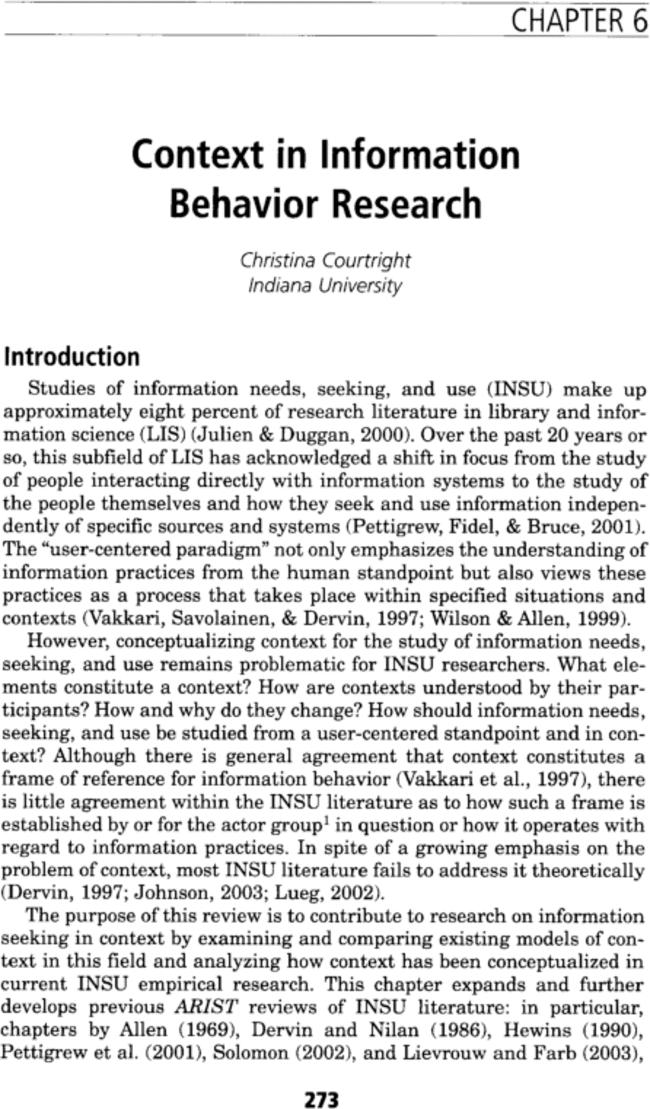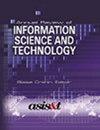Context in information behavior research
Annual Review of Information Science and Technology
Pub Date : 2008-10-24
DOI:10.1002/aris.2007.1440410113
引用次数: 166
Abstract
Studies of information needs, seeking, and use (INSU) make up approximately eight percent of research literature in library and information science (LIS) (Julien & Duggan, 2000). Over the past 20 years or so, this subfield of LIS has acknowledged a shift in focus from the study of people interacting directly with information systems to the study of the people themselves and how they seek and use information independently of specific sources and systems (Pettigrew, Fidel, & Bruce, 20011. The “user-centered paradigm” not only emphasizes the understanding of information practices from the human standpoint but also views these practices as a process that takes place within specified situations and contexts (Vakkari, Savolainen, & Dervin, 1997; Wilson & Allen, 1999). However, conceptualizing context for the study of information needs, seeking, and use remains problematic for INSU researchers. What elements constitute a context? How are contexts understood by their participants? How and why do they change? How should information needs, seeking, and use be studied from a user-centered standpoint and in context? Although there is general agreement that context constitutes a frame of reference for information behavior (Vakkari et al., 1997)) there is little agreement within the INSU literature as to how such a frame is established by or for the actor group1 in question or how it operates with regard to information practices. In spite of a growing emphasis on the problem of context, most INSU literature fails to address it theoretically (Dervin, 1997; Johnson, 2003; Lueg, 2002). The purpose of this review is to contribute to research on information seeking in context by examining and comparing existing models of context in this field and analyzing how context has been conceptualized in current INSU empirical research. This chapter expands and further develops previous ARIST reviews of INSU literature: in particular, chapters by Allen (19691, Dervin and Nilan (1986), Hewins (19901, Pettigrew et al. (20011, Solomon (20021, and Lievrouw and Farb (2003),

信息行为研究中的语境
本文章由计算机程序翻译,如有差异,请以英文原文为准。
求助全文
约1分钟内获得全文
求助全文

 求助内容:
求助内容: 应助结果提醒方式:
应助结果提醒方式:


